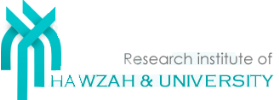
Social capital is a source of potential capabilities and actual potentials that empower the social system to realize individual and collective goals and desires. This phenomenon is highly society-oriented and situational; hence, it plays its role well enough if it is in accordance with the culture common in each society. In this study, the Holy Quran is used to discover and map the social capital framework in an Islamic society. Accordingly, social capital in terms of its nature, content, and function can be represented in the form of multidimensional and productive cycles consisting of the foundations (faith, piety, certainty, insight, and belief in Imams), dimensions (social network, social norm, and social trust), consequences (worldly and eternal), and spiritual orientation (divine affinity and salvation). In this dynamic cycle, the quality and interaction of dimensions and factors simultaneously influence each other and are also affected by the totality of social capital.
